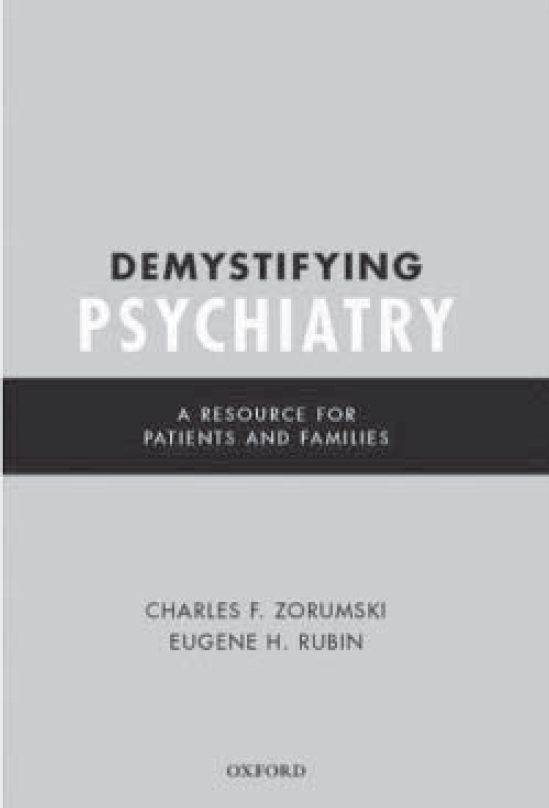
Demystifying Psychiatry is an impressively fluent compilation, cleverly converting the specialist knowledge of two American professors into a succinct overview of the many dimensions of psychiatry. Zorumski and Rubin have successfully deployed a writing style that details both clinical and scientific concepts in a surprisingly accessible manner. They have endeavoured to strive away from producing yet another mundane patient resource and to embrace the realm of the ‘expert-patient’; relevant, to the point and, most importantly, not patronising or overwhelming, Demystifying Psychiatry will not disappoint.
The chapters are titled as questions orienting the reader from the outset. The arrangement of content is such that psychiatric disorders (common conditions, warning signs) and the role of psychiatrists (psychiatric training, patient assessment) are tackled at the start. The remainder of the book deals with the theories underlying psychiatric disorders (biological mechanisms) and principles of treatment (medications, psychotherapies, brain stimulation, psychosurgery). The final sections focus on issues such as patient and family involvement in treatment, and advise patients how to approach the American consumer-oriented medical market. The book finishes with a reflection of psychiatry as a historical, yet dynamic, field with an exciting future.
The preconceptions that form the mist in psychiatry are objectively challenged; electroconvulsive therapy is regarded scientifically, a contrast to its often false portrayal in film. Delirium is explained as ‘something like the brain crashing’ and the benefits of psychotherapy as being ‘magical’. Scientific jargon is minimal and all information is fully explained in a fluid narrative. The case examples are particularly useful; through ‘Larry’ who misuses substances and ‘Mark’ who hallucinates the reader can appreciate the reality of psychiatric disorders, and indeed draw on personal experience.
Despite being aimed at ‘patients and their families’, medical student, trainee psychiatrist and even long-practising consultant will find Demystifying Psychiatry a satisfying read. It definitely ‘demystifies’ the prejudice that up-to-date psychiatric science is only available in an unapproachable textbook.



eLetters
No eLetters have been published for this article.